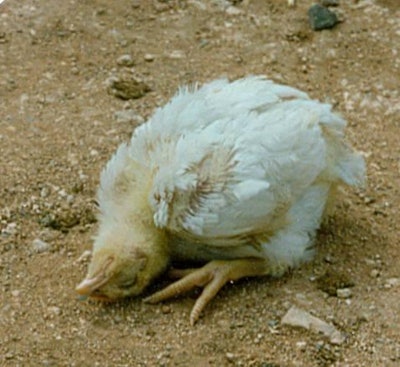
Poultry diseases of the past are fighting back. Although it sounds like the plot of a wild science fiction movie, that's not what I'm writing about. It's something real: poultry diseases that had been knocked out for decades are back.
A few days ago the 44th ANECA National Convention (Mexican Poultry Science Association) took place in Puerto Vallarta, Jalisco, Mexico, in conjunction with the 68th Western Poultry Disease Conference. A highly technical conference, where there were presentations on research in the area of avian pathology.
One of the frequent conversations I had with the attendees was about the tide of alternative poultry production that is coming (I hope it does not turn into a tsunami!) and how, in some cases, certain things that are not even in the books of modern veterinary medicine are being seen again.
Dr. Robert Gauthier, of the World Veterinary Education in Production Animal Health, told young students that they are entering the "golden age" of poultry diseases, because they are going to see diseases that were already considered outdated.
In addition to this and other comments, the presentation of Dr. Patricia Wakenell, Purdue University, who in her work visits a lot of backyard flocks of all kinds of birds, was of total impact. Dr. Wakenell talked about coccidia, Marek's disease, Mycoplasma gallisepticum, avian encephalomyelitis, fowlpox, histomoniasis, pasteurellosis, and internal and external parasites. And among those that resurface are botulism, erysipelas, avian tuberculosis or favus.
What healthy flocks? Hardly.
Sailing with the organic flag, the return to the natural, essential and the bucolic, these poor birds suffer from overcrowding, poor management and nutrition practices, as well as zero biosecurity and mixing species, among other things. Animal abuse? Even their owners practice the "adoption" of sick birds, which makes conditions perfect for spreading diseases.
And what about zoonoses? There have been cases of children from families that raise these birds that are infected with diseases. Bolivia, Dominican Republic, Honduras, Venezuela? No. All these are observations made in the United States. It's the same around the whole world.
What do you think?


















